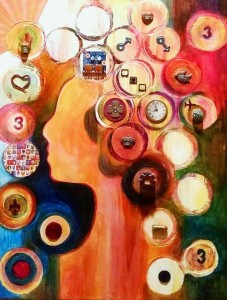It’s Complicated


Jill Jacobs
Www.freebirdcorp.com
Classical education comprises three stages of development; the Grammar stage, the Logic stage and the Rhetoric stage. Put simply, the grammar stage is learning the vocabulary of a subject. Learning is much more manageable when using this process.
On the subject of forgiveness, if you put a hundred theologians, psychologists, counselors, monks (you know what I mean) in a room together and ask them about forgiveness, you will get a hundred different opinions. Google forgiveness and you will get the usual suspects. Links that tell you that you must forgive because:
You are strong.
You deserve peace.
It leads to understanding.
It frees your heart.
It protects you from bitterness.
The Grammar stage is vital here! In a discussion of such a common emotional issue, defining terms is crucial. What do you mean when you say I must forgive? For instance, forgiveness can simply mean canceling a monetary debt. It can mean NOT having the view of “an eye for an eye,” i.e. not seeking payback for a wrong done to you. It can mean letting go of anger or blame towards another person. So, it has broad meanings, encompassing all or some of these definitions. A conversation on forgiveness in a practical situation depends not only on what one means, but the particular situation itself. That is really what I mean about defining terms. In the context of human relationships, a blanket definition of forgiveness has no meaning without understanding.
For instance, if someone comes to you and tells you they need help getting rid of their anger towards another person, to just say, “you must forgive,” without understanding the situation, is shoddy relating. Getting angry can be a very healthy reaction to plenty of painful situations including hurt, trauma and betrayal. Damn right you will be angry, especially initially. Forgiveness is personal. It is situational.
On the other hand, as a newly separated person, I have had numerous conversations with divorced people. In a conversation with a long-time divorcee, she shared every emotion and every reaction she had during that time in her life, as if it had just occurred. The despair of the past held her in its grip in the present. I can’t see that as a life of freedom. Something needed to give there. Forgiveness is personal. It is situational.
I have another friend who struggles to forgive a toxic person in his life. In his case, this toxicity is a daily occurrence! I don’t think he needs to forgive at all, I think he needs to stay the hell away from this family member who just can’t go a day without hurting those around him. Forgiveness is personal. It is situational.
As for myself, I will always forgive a fellow who comes to me in genuine sorrow. But I don’t think forgiveness is required in a lot of cases. I don’t actually feel qualified to absolve others of their guilt. Don’t get me wrong, I ask for forgiveness plenty, because I love my friends and family and I don’t want to be an agent of hurt. I am, though. Stupidity, recklessness, anger and general human imperfection abound in me. So, if forgiveness is defined as an exchange of love, I’m all over that.
I believe in healing as well. When anger or bitterness rules your day, it’s time to seek healing for the pain. Maybe that will entail some version of forgiveness, maybe it won’t. I’m more likely to call it a bid for self-awareness, and taking control of your own life. Holding on to pain inflicted by another is a powerfully draining force. At some point, the effect of the offense needs examination as opposed to focusing on the act of the other party and their release.
That’s where I start in the forgiveness game. I don’t feel required to forgive everyone who ever hurt me, but, rather, to reconcile that those actions were not about me, but about the abuser (or whomever). I am concerned with my freedom. I say let God handle that person’s pardon. I have no problem with avoiding ugly souls either. Reconciliation, relationship, and trust is a two person process. It cannot be done alone. If one’s idea of forgiveness is an attempt to single-handedly heal a relationship breach, I believe it’s a non-starter.
In some cases, I can practice acceptance with certain people in my life and remain somewhat distant. Love is powerful, but it is not control and some people simply do not love well.
If forgiveness was only, “do not return evil for evil,” and nothing else, I would say, yes, always. Like I ask my kids, “It’s your life, who are you going to be?”
1 Peter 4:8
“Above all, love one another earnestly, because love covers a multitude of sins.”




It is complicated! It’s many faceted like other things too. Well thought out, my daughter.
Maybe overthinking comes in handy at times? ❤️